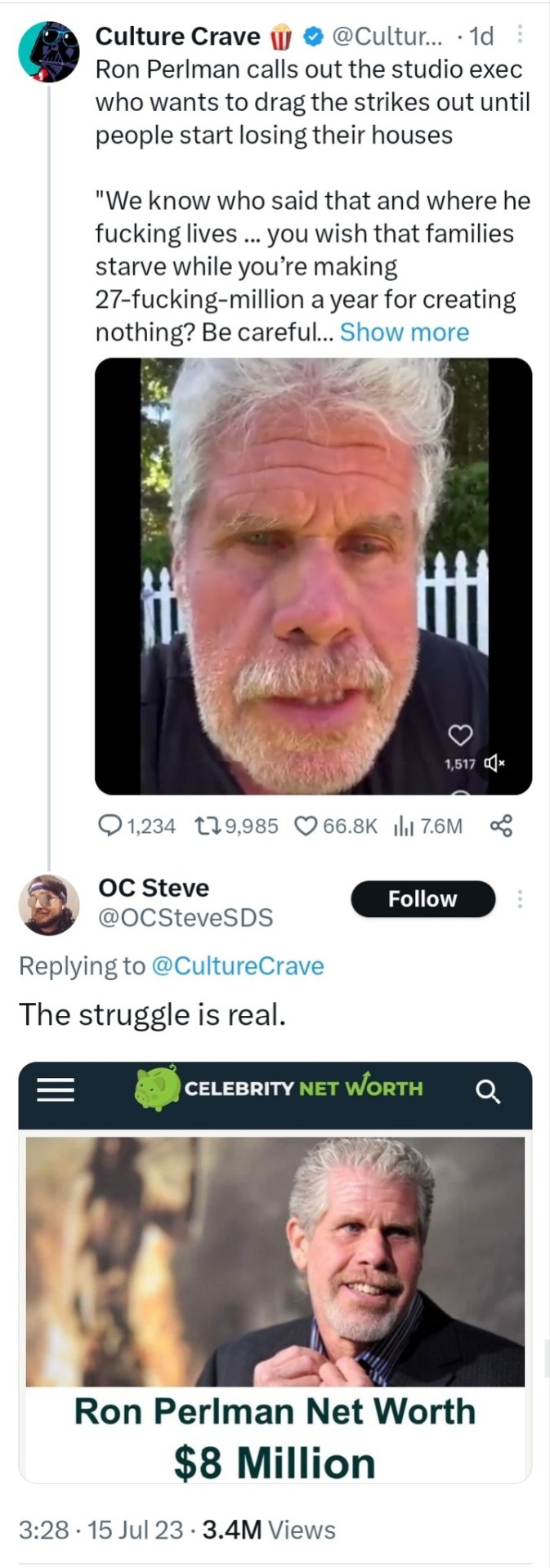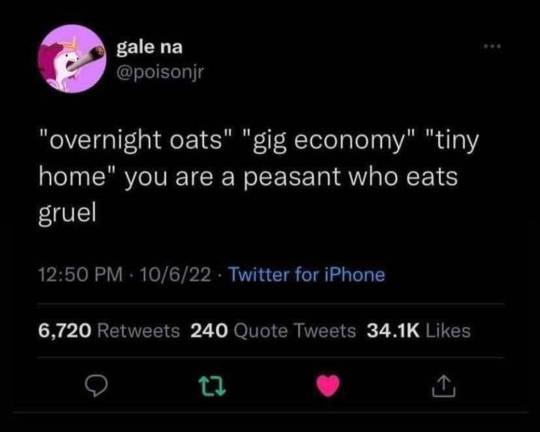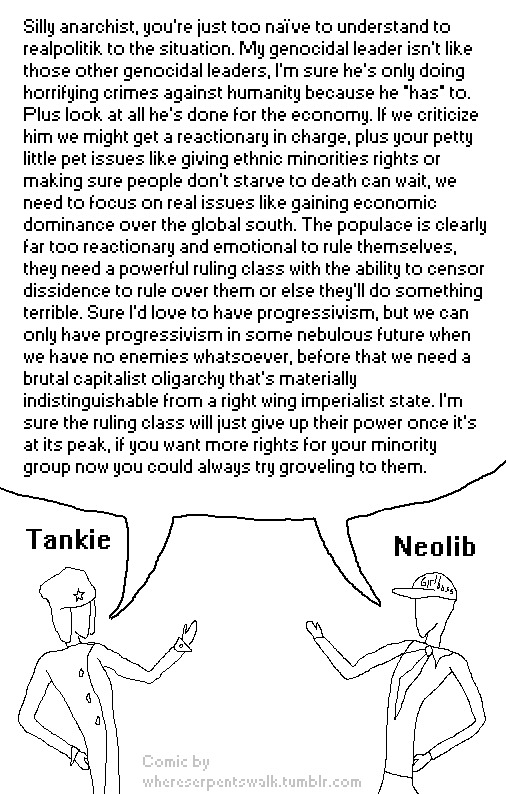#neoliberalism
Text
Toronto city councillors must speak directly with unhoused people before making policy decisions on homelessness, advocates at Toronto city hall said Thursday.
That demand was one of many made by advocates at city hall.
Al, an unhoused person who only gave their first name, said a new group formed in the past year to give unhoused people a voice. That group, the Toronto Underhoused and Homeless Union, represents people who either live outside now or have been homeless before. Al is an executive board member of the group and lived in Allan Gardens in a tent.
"We need councillors to talk to the people who are actually affected by these decisions," Al said.
"We are the people for whom these decisions are life and death. Whatever happens in council, every council member and the mayor goes home to a soft bed and a roof over their heads and gets to sleep soundly. And we do not. We get killed or brutalized or spat on or some horrendous act of violence. And even if it doesn't happen, we're kept awake because we're scared," Al added. [...]
Continue Reading.
Tagging: @newsfromstolenland
163 notes
·
View notes
Text
On April 8 we celebrate the death of Margaret Thatcher, and remember all the lives she destroyed.
#margaret thatcher#thatcher#rest in piss#liberal feminism#feminism#scotland#uk#2013#old lady#elderly#video#neoliberalism#tories
6K notes
·
View notes
Text

"But Weber’s argument was carefully grounded in history. Price controls, she argued, had been an essential element of the U.S. mobilization strategy during the Second World War. And there were several striking similarities between the economy of the nineteen-forties and that of the present day, including very high consumer demand for goods, record corporate profits, and production bottlenecks in important areas. Back then, the Office of Price Administration simply prohibited companies from raising prices above certain levels. Violators could be sued, or worse. In 1944, Montgomery Ward, the department-store chain, refused to accept the terms of a collective-bargaining agreement—a cap on the price of labor—brokered by the government. President Roosevelt ordered the National Guard to seize the business and remove Sewell Avery, its chairman, from its headquarters." (source)
3K notes
·
View notes
Text
Imagine what neoliberal propaganda articles look like in various evil empires.
"Women in Sauron's army. How female orcs have helped create a more inclusive global conquest." - The Mordor Examiner
"How the death star program is revitalizing the galactic economy." - The Coruscant Times
"Despite progressive cries to "Free Arrakis" situation with House Harkonnen more complicated then most people think." - The Corrino Fund
"How the anti imperial rabbit hole can easily lead to people to pro choas views." - Ultramar Today
#196#anticapitalistically#anticapitalist#anticapitalism#anti capitalist#anti imperialism#fuck neoliberals#neoliberal capitalism#neoliberalism#propaganda#warhammer 40000#warhammer 40k#40k#star wars#my thougts#my writing#lotr#lord of the rings#dune#arrakis
1K notes
·
View notes
Text

There are actually only 2 types of transsexuals.
744 notes
·
View notes
Text

#politics#ronald reagan#stock buybacks#capitalism#living wages#republicans#stock market#corporate greed#reaganism#economics#neoliberalism
825 notes
·
View notes
Text

Liberal double standards
#spongebob squarepants#spongebob squarepants memes#liberals#liberalism#neoliberalism#fuck neoliberals#neoliberal capitalism#neoliberal thought#neoliberal feminism#israel#israhell#palestine#gaza#double standards#double standard much?#anti liberalism#anti liberal feminism#class war#free palestine#freepalastine🇵🇸#ausgov#politas#auspol#tasgov#taspol#australia#anthony albanese#albanese government#free gaza#gaza strip
252 notes
·
View notes
Text

Source
#imperialism#end all wars#military industrial complex#politics#us politics#government#the left#news#liberalism#neoliberalism#progressive#current events
625 notes
·
View notes
Text

(alt included)
Showcase example of why I am deeply skeptical of Eat The Rich types. Too many of y'all are like this fuckhead who has no clue what rich requires eating.
Also for context: Ron Perlman has been acting since 1975. Studio exec Bob Igor made $27 million last year from Disney alone, just one of his streams of annual income, which includes but is not limited to stocks, real estate and consulting.
#sga strike#ron perlman#swa strike#us politics#hollywood#entertainment#labour rights#workers rights#capitalism#western leftists#class war#twitter#neoliberalism#worker exploitation#social justice#knee of huss
734 notes
·
View notes
Text
The Canadian and Ecuadorian governments continue to forge ahead with free trade agreement (FTA) plans, despite opposition from social movements and Indigenous Peoples within Ecuador, along with rampant instability.
In these negotiations, the spotlight is on the Canadian mining industry. Canadian mining investments in Ecuador are valued at $1.8 billion, with Canada’s trade commissioner noting that Canadian companies are “leading investors” in Ecuador’s mining sector.
The trade commissioner also praises Ecuador’s “mining-friendly legal framework.”
On March 5, Ecuadorian President Daniel Noboa met with Justin Trudeau in Ottawa. Both leaders welcomed “the imminent launch of negotiations toward a Canada-Ecuador free trade agreement.”
The day before, Noboa spoke at the 2024 convention of the Prospectors and Developers Association of Canada (PDAC), an annual event that promotes Canadian mining interests globally. March 4 was “Ecuador Day” at PDAC, and Noboa used the opportunity to promote his country as a “mining destination” to Canadian investors.
This is despite what MiningWatch Canada calls “serious human rights violations [that shed] light on the state of conflict over mining projects in peasant and Indigenous territories” in Ecuador.
Continue Reading.
Tagging: @newsfromstolenland @allthegeopolitics
111 notes
·
View notes
Text

#dark academia#light academia#anti capitalism#abolish capitalism#neofeudalism#neoliberalism#neoliberal capitalism#unionize#eat the rich#activism#vote#antiwork#collapse#sustainability#degrowth#socialism
437 notes
·
View notes
Text
A plan to build a Google data centre that will use millions of litres of water a day has sparked anger in Uruguay, which is suffering its worst drought in 74 years.
Water shortages are so severe in the country that a state of emergency has been declared in Montevideo and the authorities have added salty water to the public drinking water supplies, prompting widespread protests.
Critics claim that the government is prioritising water for transnationals and agribusiness at the expense of its own citizens. Daniel Pena, a researcher at the University of the Republic in Montevideo, said: “Only a tiny proportion of water in Uruguay is used for human consumption. The majority is used for big agro industries, such as soya, rice and wood pulping. Now we have Google planning to use enormous quantities of water.”
2K notes
·
View notes
Text

Made this political cartoon. Feel free to share it around just don't remove the watermark.
#196#my thougts#leftism#leftist#neoliberalism#fuck neoliberals#neoliberal capitalism#libertarian socialism#neoliberal thought#liberalism#anarchist#anarchism#anarchocommunism#anarchopunk#tankie#tankies#marxist leninist#marxism#social issues#socialism
575 notes
·
View notes
Text
"Rituals are architectures of time, structuring and stabilising life, and they are on the wane. The pandemic has accelerated the disappearance of rituals. Work also has ritual aspects. We go to work at set times. Work takes place in a community. In the home office, the ritual of work is completely lost. The day loses its rhythm and structure. This somehow makes us tired and depressed.
In The Little Prince [1943], by [Antoine de] Saint-Exupéry, the little prince asks the fox to always visit at the exact same time, so that the visit becomes a ritual. The little prince explains to the fox what a ritual is. Rituals are to time as rooms are to an apartment. They make time accessible like a house. They organise time, arrange it. In this way you make time appear meaningful.
Time today lacks a solid structure. It is not a house, but a capricious river. The disappearance of rituals does not simply mean that we have more freedom. The total flexibilisation of life brings loss, too. Rituals may restrict freedom, but they structure and stabilise life. They anchor values and symbolic systems in the body, reinforcing community. In rituals we experience community, communal closeness, physically.
Digitalisation strips away the physicality of the world. Then comes the pandemic. It aggravates the loss of the physical experience of community. You’re asking: can’t we do this by ourselves? Today we reject all rituals as something external, formal and therefore inauthentic. Neoliberalism produces a culture of authenticity, which places the ego at its centre. The culture of authenticity develops a suspicion of ritualised forms of interaction. Only spontaneous emotions, subjective states, are authentic. Modelled behaviour, for example courtesy, is written off as inauthentic or superficial. The narcissistic cult of authenticity is partly responsible for the increasing brutality of society.
In my book I argue the case against the cult of authenticity, for an ethic of beautiful forms. Gestures of courtesy are not just superficial. The French philosopher Alain says that gestures of courtesy hold a great power on our thoughts. That if you mime kindness, goodwill and joy, and go through motions such as bowing, they help against foul moods as well as stomach ache. Often the external has a stronger hold than the internal.
Blaise Pascal once said that instead of despairing over a loss of faith, one should simply go to mass and join in rituals such as prayer and song, in other words mime, since it is precisely this that will bring back faith. The external transforms the internal, brings about new conditions. Therein lies the power of rituals. And our consciousness today is no longer rooted in objects. These external things can be very effective in stabilising consciousness. It is very difficult with information, since it is really volatile and holds a very narrow range of relevance."
- Byung-Chul Han being interviewed by Gesine Borcherdt, from "Byung-Chul Han: 'I Practise Philosophy as Art.'" Art Review, 2 December 2021.
#byung chul han#quote#quotations#ritual#ceremony#liturgy#time#community#philosophy#gesine borcherdt#faith#zen#christian theology#anthropology#consciousness#neoliberalism#capitalism
2K notes
·
View notes


